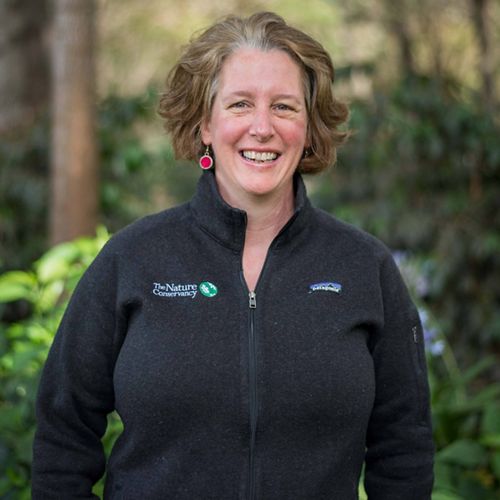Anne Trainor
Smart Growth Director
Africa Program

Anne Trainor Smart Growth Director, Africa Program © Roshni Lodhia
AREA OF EXPERTISE
Wildlife Conservation, Spatial Ecology, Energy Development, Land-use Planning, Remote Sensing
Biography
Dr. Anne Trainor is the Smart Growth Director for the Africa Program. She oversees Smart Growth programs throughout Africa. For example, Anne is working with the Nature Conservancy's Zambia program to develop an inter-ministerial landscape planning framework that will enhance biodiversity and ecosystem integrity while promoting a national economic development agenda.
After completing her master’s studies in Wildlife Biology at Colorado State University, she received her Ph.D. in Geography from University of North Carolina-Chapel Hill where she combined traditional field ecology, quantitatively analytical tools, and remote sensing to identify critical habitat and dispersal pathways for federally endangered species. Following her graduate work, Anne completed a postdoctoral fellowship at the School of Forestry and Environmental Studies at Yale University where she served as a coordinator and key participant in developing the Yale Framework Project, which seeks to ensure the persistence of biodiversity in the face of climate change by helping conservation practitioners reconcile the need to protect ecosystems services with infrastructure development (e.g., urban growth and renewable energy). She then became a TNC NatureNet Science Fellow, with Dr. Joseph Fargione as a co-mentor. As a NatureNet fellow, Anne focused on predicting future U.S. land-use requirements under various energy development scenarios. Specifically, she worked with the California program to develop a spatially explicit, multi-objective, decision framework to explore the landscape of options available for simultaneously permitting future solar infrastructure and expanding conservation in the San Joaquin Valley.
As a co-lead on a SNAP working group, Anne is collaborating with hydrologists, environmental engineers, policy experts, government agencies, and industry to assess the challenges and policies to maintain surface flows and groundwater supply and quantify the potential risks of hydraulic fracturing chemicals and wastewater being released in the environment. Based on these analyses, we are developing and disseminated leading practices directly to policy-makers and regulators in the U.S. and in countries (e.g., Argentina and Columbia) where shale development is expected to increase.